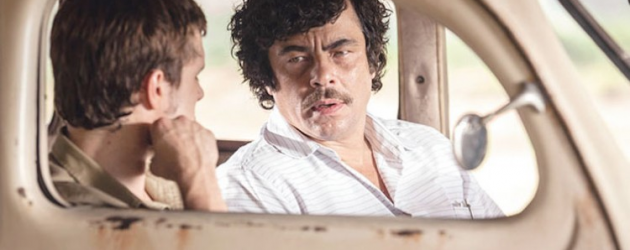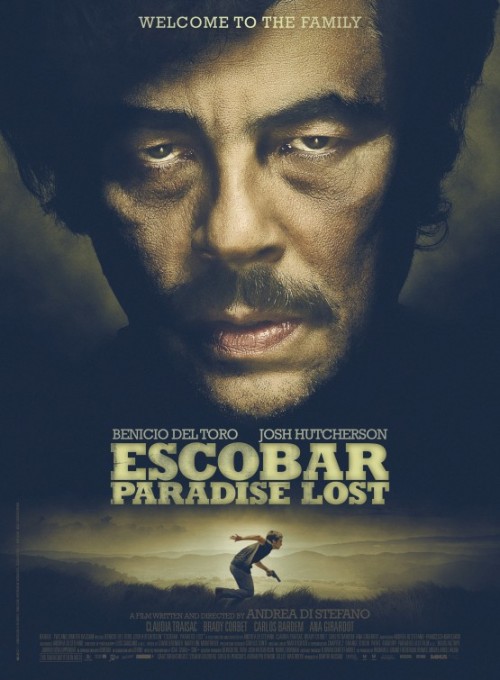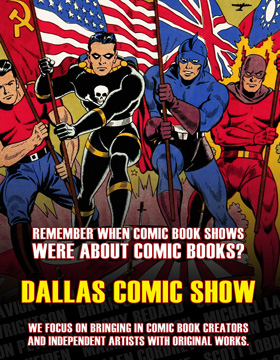Escobar: Paradise Lost is a Film that can fall under both the quasi-real and quasi-fictional genre, so perhaps it could be under a giant colorful umbrella that reads part bio-pic and part made-up. And then when one screens the scenes, the results too are a bit part this and part that – just like the themes depicted in the movie that create a disjointed mixed-up feel. It is a mix up of Romance, Thriller, Reality, and Fiction that feels like a strange concoction. So to begin with, the central and dominant theme is the romance between two people – a Canadian surfer visiting Colombia falls in love with the colossal drug dealer’s niece. And another dominant theme, as the film’s title would lead you to believe, is the powerful Colombian drug lord Pablo Escobar, played by none other than versatile and magnetic actor Benicio Del Toro. Escobar powerfully and clandestinely runs his Medellín Cartel, an organization out of the city of Medillin, Colombia. Pablo, the real life Drug Lord, remained in power as the notorious cocaine trafficker in the 70s and the 80s, famously known as the King of Cocaine. He was eventually killed in 1993. The film operates on this pulsating theme which forms the major fabric of the story. However this is where the Director, Andrea Di Stefano, gets ambitious and makes an interracial romance an equally important theme of the film.
Initially we are introduced to a set of Canadian brothers, Nick played by Josh Hutcherson (THE HUNGER GAMES) and Dylan played by Brady Corbet (FORCE MAJEURE). The surfing brothers are seeking to find a safe haven, almost a utopia in Colombia, ironically known for its cocaine business. Here Nick gets increasingly enamored by Maria (played by Claudia Traisac), who is Pablo’s niece. Trouble soon follows with an introduction to the local thugs, and then eventually to Maria’s Uncle (Del Toro) who is a sort of a Messiah to the local people. What becomes a bit annoying is Nick’s reaction when he suspects that the Uncle is a Drug Lord. Even before the actual revelation is made, his twitches and huffs and puffs seem not only exaggerated but also like a pre-orgasm. The revelation comes at a slower speed while Nick’s alarming emotional reactions of sulking and panting and fuming take away from the shock of things. When the big events do unravel, the reactions have already kind of left the audience feeling a bit cheated.
Even despite the screaming beauty of Maria, and the evident falling in love with her (not to mention that the two actors, Hutcherson and Traisac, are actually dating in real life), the scenes fall short of the drama they should have created. The love aspect seems almost plain. There should have been a compelling force that Nick should have illustrated as he, despite the differences in culture, the language and all the alien stuff he has to endure, gets more and more steeped into this relationship. The events feel a bit choppy. Again the confusion comes because it is part the love story and part the drug lord’s story.
Del Toro as Escobar is powerful in his acting but the question is was he able to do justice to his talent based on the script and the scenes – unfortunately not. Now some scenes are potent, like where Nick is asked to kill a person as a way to perhaps prove his fidelity and trust-worthiness to the Escobar. His moral struggle is well captured and also later the chase where he is surrounded by the mafia and the police in this alien country, trying desperately to survive. Perhaps the casting was a bit eschewed even as Hutcherson’s performance is believable and Del Toro’s depiction of Escobar as a family man and a drug lord is equally credible. In some ways it is the pacing of the script, and the reactions and the counter-reactions that appear to be a bit out-of-order, that take away the momentum from the film.
So was Escobar: Paradise Lost a gripping story of the wealthiest criminal in history, with an estimated net-worth of US$30 billion by the early 1990s? No. Is this a pulsating saga of romance and passion between two lovers? Not really. Is it a depiction of dilemma of a white man caught in the illegal world of drugs trying to find an escape with his newly found love? Yes, that’s what it is. In the end it is worth it to give kudos to Carlos Bardem (a Spanish actor who plays the right-hand man of Pablo) for his acting finesse. The last scene of the movie was probably the most powerful. All the paradise lost for nothing is gained back. At least metaphysically. And it feels a stronger and more poetic in closure compared to a moral saga of a tourist.









